How To Improve Your Van Life Experience With Solar Generators?
There are more than 16 million posts with the hashtag #vanlife on Instagram indicating that more and more people are opting for living in a van. It is a new choice instead of paying heavy mortgages and rent. Or you need help saving money to explore new adventures on the open road. Living in a van could be the right way for you. However, before you decide to live in a van, the first thing you need to face is you are off-grid, and almost all of life's basic necessities, like refrigeration, heater, and even basic lighting will not work. However, the game has changed now. You can take your van life to the next level by using a solar generator. Charging your devices and running essential appliances like a refrigerator is as simple as plugging cords into an outlet.
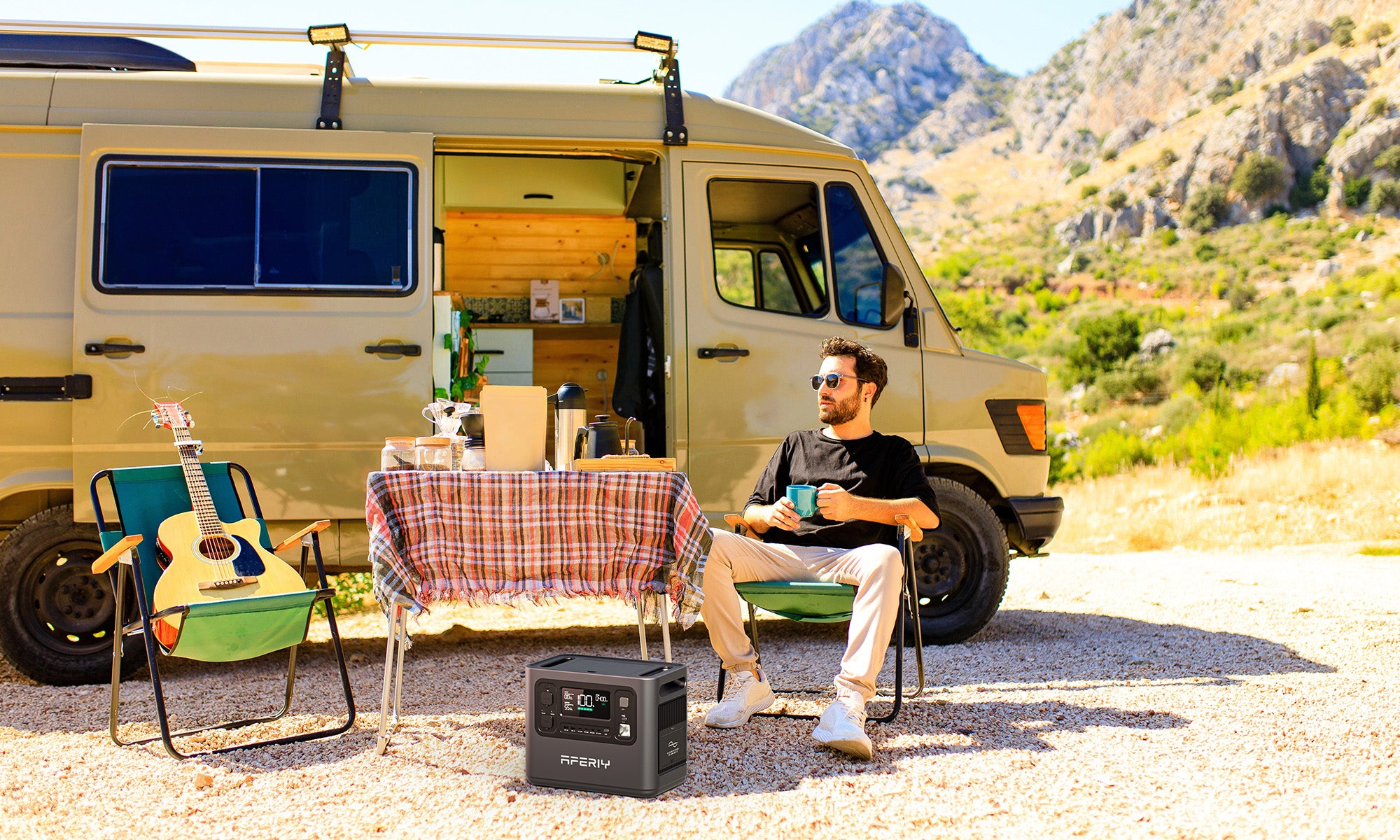
Compared with gas generators, solar generators are becoming increasingly popular due to their sustainability, and cost-effectiveness. In this blog article, we will discuss how solar generators improve your van life experience. In addition, we will cover everything you need to know about solar generators, including how they work, their benefits, and tips for choosing the best type of solar generator.
What're Solar Generators?
To be simple, a solar generator is a portable power system that combines a set of solar panels and a power station. The solar panels are responsible for collecting and converting the sunlight into direct current (DC) electricity. Then the portable power station allows you to store the energy you collect and use it to power your appliances.
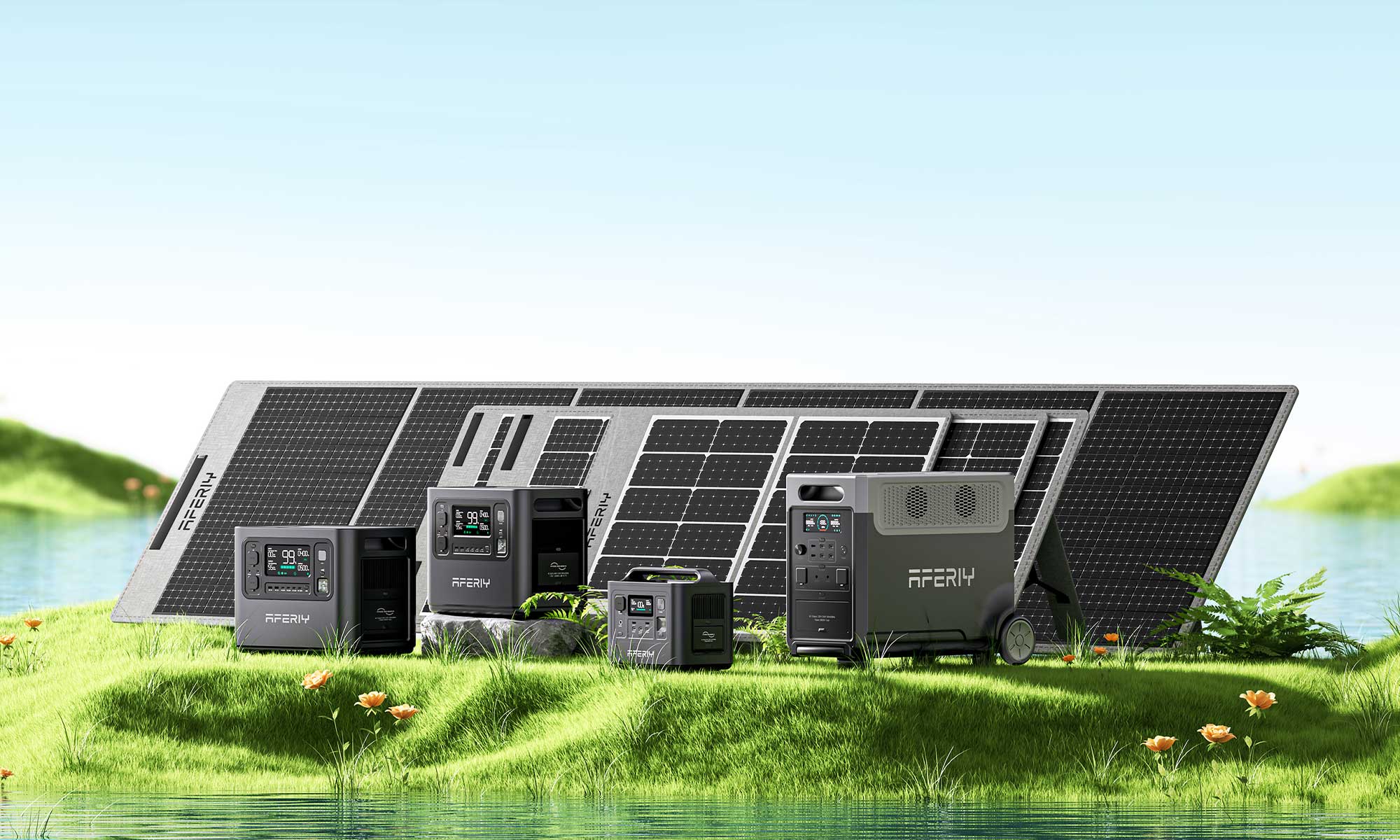
By solar generators, you can get a reliable and sustainable source to power up your lifestyle wherever you are. Let's take the 2000W portable power station as an example, its output rated/surge is 2000W stable output (4000W peak), and its capacity is 1997Wh. To find out how long this power station lasts, we spent hours testing it with some common appliances:
- Vehicle Refrigerator(65W): 25H
- Fans(40W): 41H
- LED Light(10W): 159H
- Drone(40W): 42.4H
- TV(60W): 28.3
- Electric Grill(1100W): 1.5H
The essential appliances and devices that need electricity power are not luxuries anymore while you are living on the road in a van.
Pros And Cons Of Solar Generators For Van Life
Pros Of Solar Generators For Van Life
It would be an unnecessary challenge that try to go off-grid without some portable power source. They certainly offer the quality and options for your van life experience Let's take a closer look at the benefits of using a solar generator as a source of electricity.
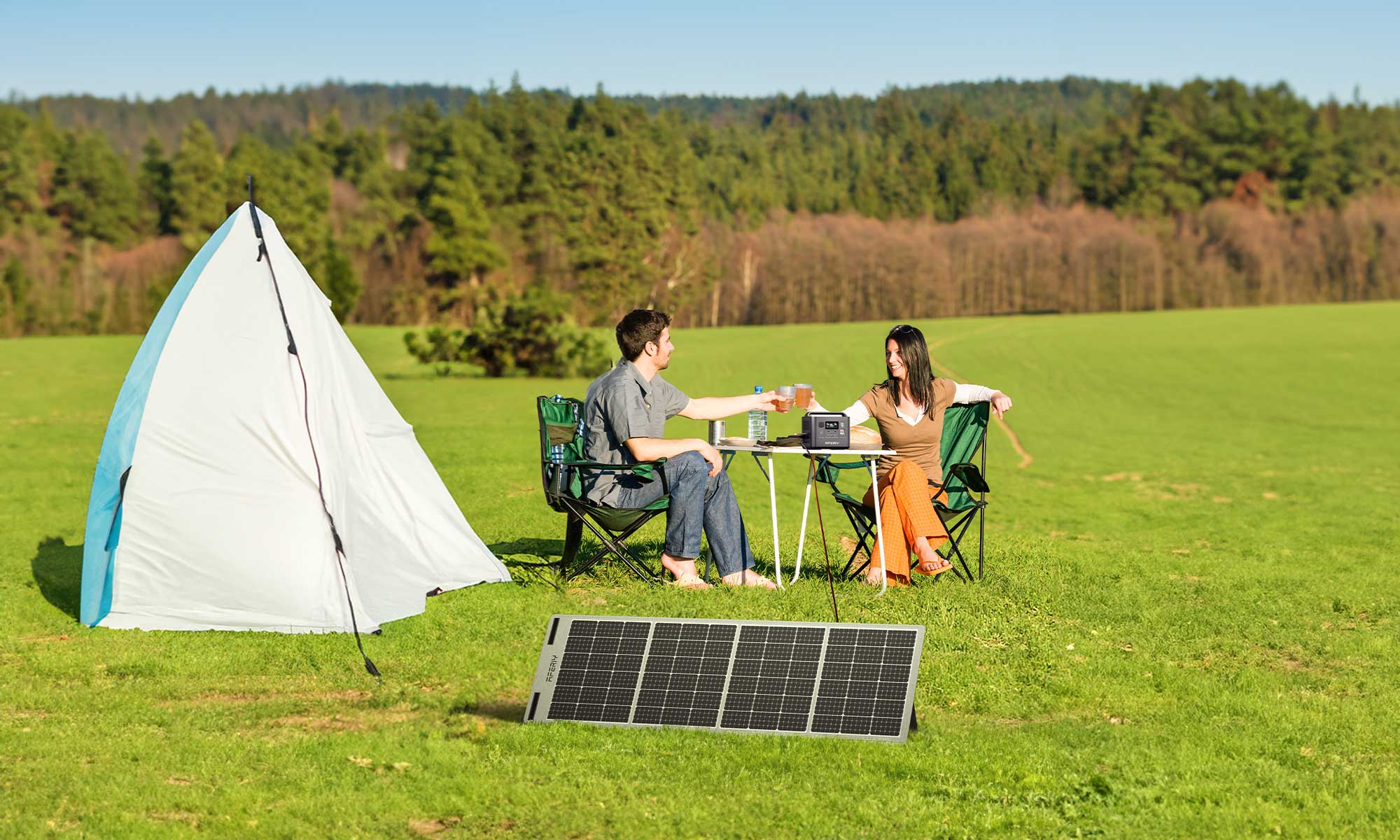
Clean and Eco-friendly
Since the generators are powered by the sun, they do not have any pollutants when they are working. Compared with gas generators, you don't have to worry about gasoline, which is easy to volatile and difficult to transport and store. Tapping into the power of solar is the cleanest way to power your devices for van living.
Cost-Effective
Not only is a solar generator cheaper but also the running costs will be much lower than a fuel-powered generator. The gas prices are higher and higher as the overexploitation and the use of energy has led to energy shortages. However, you can save a lot by converting the free sunlight to power.
Safety And Non-Noise
The gas generator emits toxic fumes and loud noise when working. You also have to pay much attention to the storage of volatile fuels to avoid fire. That's completely eliminated when using a solar-powered generator. No toxic fumes and no noise. They just work quietly and unnoticed.
Cons Of Solar Generators For Van Life
Nothing is perfect, as well as solar generators. While solar generators offer numerous advantages, there are also some disadvantages to consider.
Weather Dependence
Simply put, the principle of a solar generator is to convert sunlight into computers, which means the generator is weather-dependent. It may not work at night, and have a low power output in cloudy or rainy conditions. This can be a challenge. But you can choose a high-capacity battery to store the power to face this situation. Aferiy portable power station also offers a DC outlet recharging option, so you can use a van to recharge.
Limited Power Capacity
Though solar generators have many advantages, they still have a lower power capacity compared to traditional gas generators. They are more suitable for powering small appliances and devices or powering big appliances like refrigerators, or microwaves in a short time. Let's take Aferiy P210 -- 2048Wh capacity, 2400W output as a sample. We spent hours testing it with some common appliances:
- Vehicle Refrigerator(65W) 26.8Hrs
- Fans(40W) 43.5Hrs
- Drone(40W) 43.5Hrs
- TV(60W) 29Hrs
- Electric Grill(1100W) 1.5Hrs
This can be a limitation for who has more appliances. So before you make a decision, you need to figure out your electricity needs.
We compared the pros and cons of solar generators and came to the conclusion that the pros outweigh the cons. Although they have a few inconveniences, you are still worth buying one and improving your van life.
How To Choose A Solar Generator For Your Van Life?
It seems difficult to choose the right solar generator that meets your van life power needs. Actually, this is just a false proposition. What you need to do just follow the steps below.
Make A List Of All The Appliances And Devices You Need
The size of the solar generator needed for a camper depends on the power requirements of the appliances and devices that need to be powered. To determine the appropriate size, users should first make a list of all the appliances and devices they plan to use and their power ratings in watts.
Calculate How Much Power They Will Be Used
Once you make the list, you can estimate the total power required per day. Here is a simple formula for you to calculate how long a solar generator lasts.
Working Time = Battery Capacity * 0.85 / Wattage Consumption of Appliances
Let's take a simple case. If you have a 2000W portable power station with 1997Wh. And you need to charge multiple appliances like refrigerators (500W), CPAP machines (60W), and lights (5W) simultaneously. The working time of a 2000W portable power station can be calculated as:
Working Time = Battery Capacity * 0.85 / Wattage Consumption of Appliances = 1997Wh * 0.85 / 565W = 3 hours
You can also calculate the usage time of some common appliances separately to assess your needs, like these:
- Vehicle Refrigerator(65W): 25H
- Fans(40W): 41H
- LED Light(10W): 159H
- Drone(40W): 42.4H
- TV(60W): 28.3
- Electric Grill(1100W): 1.5H
In summary, the size of the solar generator for a camper depends on the power requirements of the appliances and devices that need to be powered, and users should carefully consider their power needs before selecting a solar generator.
Calculate How Much Power A Solar Panel Produces
We have solved the output problem, and now we need to solve the input problem. We need to calculate how much power a solar panel produces so you can choose the right solar panel. Here we still use a simple formula:
Power = Watt * Hours * 0.85
For instance, the Aferiy AF-S200 200W solar panel can generate up to 200W or less power. If they receive the sun's peak rays for 5 hours, you can calculate the power using the formula:
Power = 200W * 5 * 0.85 = 850 Watts.
If you have a 2000W portable power station, it means you may consider buying 2 pieces of AF-S200, and keep them working for at least 5 hours to charge the power station fully.
Please remember, that solar panel wattage is determined under laboratory conditions, but the actual output constantly changes depending on the type of photovoltaic (PV) solar panels you use and external factors like sunshine and ambient temperature.
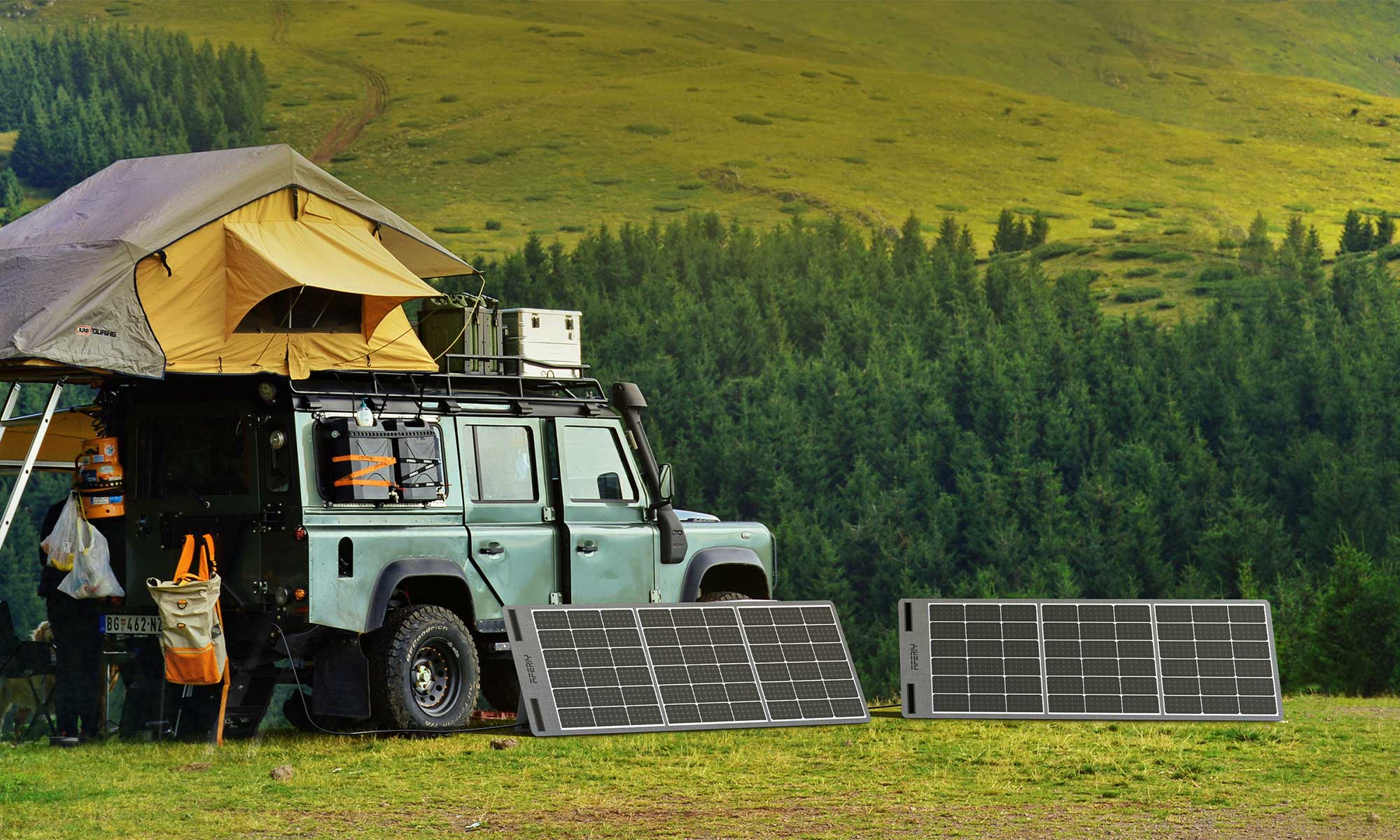
Factors When Consider Solar Generators
Investment in a solar generator for living in a van is a wise decision, as it can significantly improve your van's life experience. There are many factors when you choose a generator, and here are some tips for you.
Its Size And Weight
The space in an RV is very limited and even cramped. So we put portability and weight as a priority factor. We should choose a lightweight, compact, and easy-to-transport solar generator. A good generator won't take up too much space in your van.
High Battery Capacity
To be honest, recharging the generator while living in a van is not an easy thing, specifically if you are outdoors. A higher generator capacity means the generator allows you to run more appliances and devices and a longer period. You can follow the steps to choose the right battery capacity we have mentioned earlier in the article.
More Charge Cycles
The number of charge cycles is the number of times a battery can be charged and discharged before it loses its capacity. The higher the number of charge cycles, the higher the lifespan of solar generators. Most of Aferiy's solar generators have 3000+ times charge cycles, which means you can use their generators for at least 3 years. They also offer an up to 7-year warranty.
Charging Method And Fast Charge Speed
Sometimes solar motors are unable to produce enough power due to weather conditions. At this time, the diverse charging methods will give you more choices, ensuring that you have power available at any time. We also keep our eyes on the charging speed. If you have limited time or access to power sources, a fast charge speed will be very helpful.
Aferiy solar generator kits offer 3 charging methods, AC, DC, and solar input. Some models can be fully charged in 3 hours.
Output Ports And High-Watt
If you have multiple appliances and devices, you should choose the generators that come with multiple ports and different types of ports to ensure compatibility with various devices and appliances. Additionally, check the stable and peak output watt to ensure the appliances can operate smoothly.
Price
Lastly, you should balance cost, capabilities, and your budget. A higher-priced generator usually comes with more features and capabilities, but it may not always be necessary for your specific needs. A small-capacity generator may be your ideal choice if you have little appliances that need to be charge.
Conclusion
In conclusion, a solar generator is an excellent option for powering RVs and enjoying off-grid living without worrying about finding a power source. They are more eco-friendly cost-effective and safer than gas generators. However, choosing the right solar generators is crucial to ensure optimal performance. Therefore we listed some common factors when considering a solar generator. We hope this ultimate guide to solar generators for living in a van can provide you with some helpful information and help you make a confident decision.


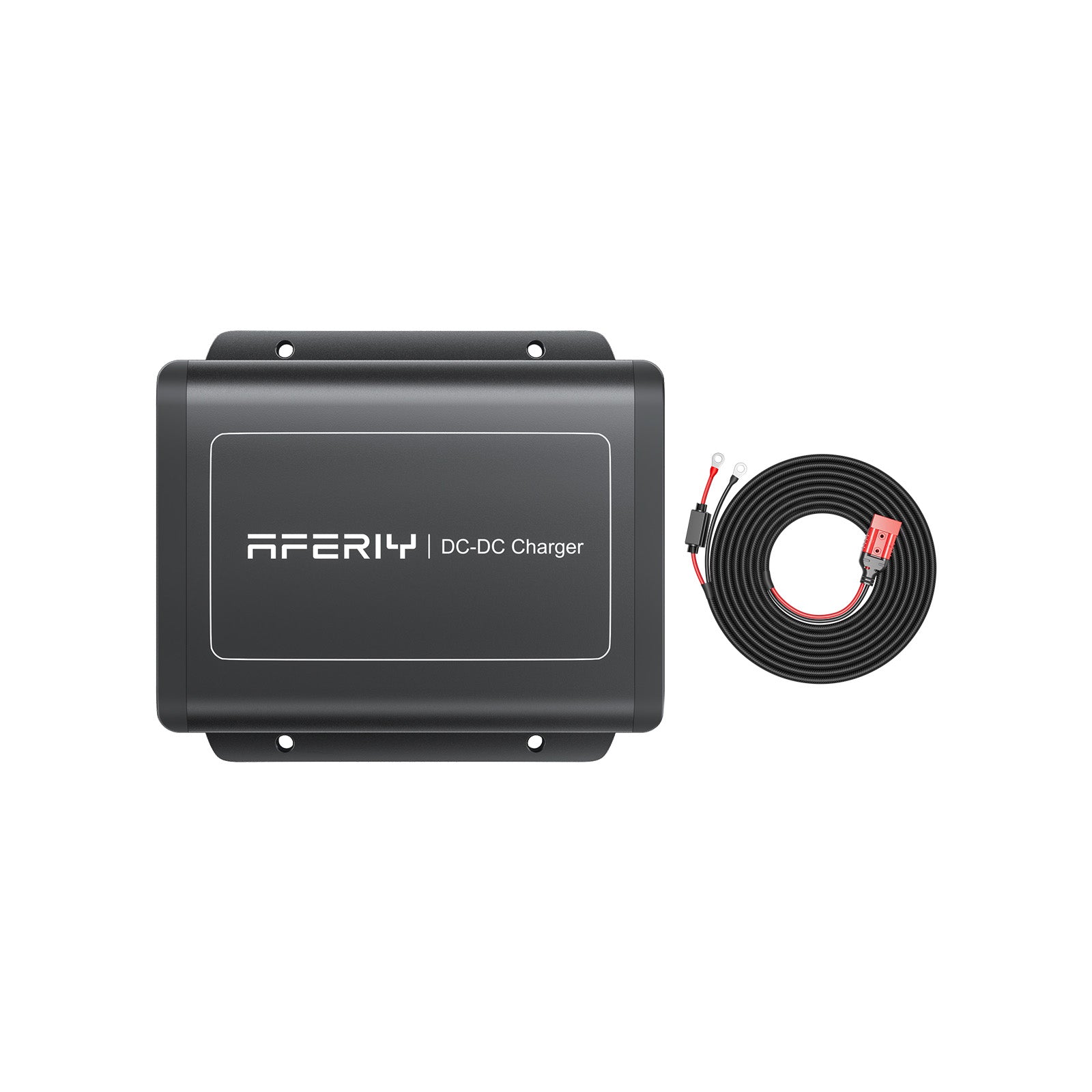













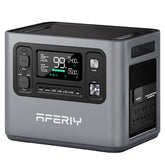



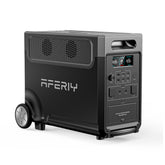



Leave a comment
Please note, comments need to be approved before they are published.